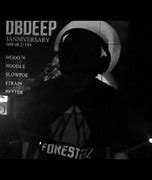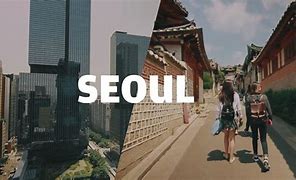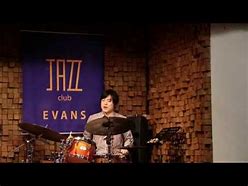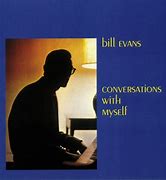LIVE MUSIC SURVIVAL IN SEOUL
LIVE MUSIC SURVIVAL IN SEOUL
by Norman Warwick
Much of the following information has been learned from
https://www.pastemagazine.com/music/south-korea/south-korea-live-music-pandemic/
but we at Sidetracks & Detours are confident they would agree that the sharing of some of this knowledge might enhance a visit to the area for tourists and so help live music survive.
On any given night in Seoul, South Korea, before the coronavirus outbreak, you could head to to the area of Hongdae to catch a show. that is where most of the city’s music venues are located, with small, underground clubs on almost every corner, sometimes tightly packed or other times only sparsely filled, with music fans of all kinds.
They buzz excitedly in groups after work ends on “burning Friday” (a less cheesy “TGIF”) or coolly sip drinks alone in the back. Beer is mixed with clear soju liquor for expediency.

You can find artists like Kirara (left) twisting knobs to dance bangers inspired by video games, Jambinai reimagining post-rock with traditional Korean instruments and punk band Drinking Boys and Girls Choir ripping through songs like National Police Shit. During recent lockdowns in the region, though, instead the joy of sticky floors and deafening sound systems, Korean indie fans tune in to YouTube on Tuesday and Thursday nights to watch live performances. Alone in their bed-sits or alongside a couple friends, in their living room, they peer into their laptop screens. Sessions begin with an intro featuring homemade puppets—one resembling a mouse, another a human-shaped red blob and the third a person with wacky red hair—who bop around for a few minutes before delivering a brief uplifting monologue (their current spiel mourns the world’s rampant racism) and shouting the name of the show. The footage fades into a shot of a studio, and the magic begins.
A Korean woman with curly green hair holds a pose in perfect stillness before her band erupts into a quirky pop song. Cameras show a close-up of her bejeweled synthesizer, a wide shot of the guitarist bouncing in place and of chunky vintage TVs scattered around the set displaying the band’s logo.

This semi-weekly live stream, titled Show Must Go On is broadcast live out of Senggi Studio in Seoul. Senggi is a music venue-studio hybrid that used to host concerts, music events and video shoots. Despite the pandemic, music venues in Seoul have only recently been faced with strict regulations.
All businesses continued to operate normally, citizens dutifully wore masks and Korea became a shining example of coronavirus preparedness in western news outlets.
But a few weeks ago, the government’s newly designed four-tier system for coronavirus precautions was upgraded to level two-and-a-half, and Hongdae’s indie venues, even ones that could only host audiences of 20 people, were forced to temporarily close..
Now, the Show Must Go On streamed events are some of the only concerts in the entire city.
´When the coronavirus first started to spread, there weren’t many streaming performances being held,´ explains the Senggi Studio chang, (boss) and operator Jooyoung Jung. ´
Even now, most are filmed and edited in advance so artists and audience members can’t interact with one another. I wanted to create a streaming performance that felt more real, so I started Show Must Go On.
His dream for the studio when it opened almost two years ago) was ´to introduce the best of Korean music to foreign countries, and introduce great music from abroad to Korean music lovers.´
But now, his dreams have been forced to take a new form, as only 10 audience members are allowed at each concert and bringing in international artists is unaffordable and all but impossible.
These days, the information of live concert attendees, provided through individualized QR codes scanned at the door, must be collected (for trace and tracking) in case of an outbreak. Jooyoung smiles as he squirts hand sanitizer into the hands of masked fans, who have come to see the idiosyncratic indie-pop diva Hyangni for tonight’s broadcast. Though times have never been tougher for venue owners and musicians alike, he remains determined to prove that music has no borders, and to promote underground music from Korea that most foreigners have never heard before.

Elsewhere in Seoul, Patrick Connor, manager of Korean indie-pop duo Wedance, hosted a socially distanced gig at the beginning of August. With a reduced audience of 200 people, the band went ahead with their previously planned album release party at a warehouse in the eastern part of the city.
´We received a grant to do this show, quite early on in the year,´ Connor said. ´The plan was to hold as big of a show as we could, using the grant to supply full production, spend good money on marketing and make it a big deal.
About a month after, the pandemic really hit and social distancing regulations meant we could only get about 200 people when we had hoped to host 600-800.´
With temperature checks at the door, QR code registration and two rounds of venue disinfection, the show was able to take place. Squares with the band’s logo were placed on the floor, one meter apart, for audience members to stand on, and security guards made sure proper distance was maintained. A few individual trampolines even lined the perimeter, allowing for slightly freer socially distanced motion.

Wedance played two sets—one with a full band and one with the duo performing alone—of their own peculiar but delightful brand of fuzzy, guitar-driven pop. The band’s performance was both comforting and emboldening. A few fans danced wildly in place, arms flailing and hips twisting while their feet stayed firmly planted on their designated spots. Overall, the show was a success, but the model may not prove sustainable for other indie artists.
´If we hadn’t had the grant, we would have lost amazing amounts of money,´ Connor said. ´We would have needed to sell 400 tickets just to cover our costs, and when we were limited to 200, we would have already lost 50% of our investment even with a sell-out.´
As an experienced promoter in Korea with his promotion company Highjinx, Connor has facilitated the entry and performance of dozens of foreign bands, mostly from his home country, the U.K. However, every solution he has encountered to get around the pandemic seems to have its own problems. There’s some talk about ´travel corridors´ among virus-controlled countries, week-long residencies following quarantine periods and tours where artists perform three smaller shows per day instead of one big show.
´Korea’s above-average handling of the virus could prevent international artists from coming for quite a while,´ Connor said. “The quarantine rules won’t be going away anytime soon, and no artist can afford to quarantine for two weeks before playing a show, even at full capacity.´
Though the option isn’t available to all artists, K-pop groups such as Twice and Monsta-X have hosted ticketed live-streams—fully produced events lasting two hours or more—for fans around the world who will tune in at practically any hour to watch their favourite bands perform. Tickets are much cheaper than normal, at around $30 United States Dollars, but many more tickets can be sold for a single performance. In July, famed K-pop group BTS set a world record when 756,000 fans bought tickets and tuned in live, about 50 times the capacity of a typical arena concert. As Connor points out, the hardships created by coronavirus hit indie musicians exponentially harder than well-established acts.
´If you’re already doing really well as an artist then you’ll probably be fine,” he says. “´however, those musicians still trying to build an established fan-base, ´will find it even harder. Ultimately, being in Korea, you can put on a show, but you can’t really make any money. The government grants help us to still do something, which is great, but it’s not like they’re handing out grants to easily support music companies or artists who are struggling.´
With no end to the global pandemic in sight, hybrid live-stream concerts will likely be the way forward, even in countries like Korea who made swift progress in keeping the outbreak to a minimum. Until a vaccine becomes available, music fans in Korea will have to embrace their local scene by sticking to small clubs, tuning in to programs like “Show Must Go On” and hoping for the best.
Originally from the U.S. and now based in Seoul, Abi Raymaker has written music features and provided photographs for sites such as tmrw magazine, Baeble and Paste. How weird it seems that just as she was writing this article, thousands of miles away in the UK. top South Korean footballer xxx was scoring four goals of Spura against Southampton, applauded only by the clapping of a few team mates and club officials, dotted around the empty 50,000 seater ground. The match, like the zoom concerts Abi has described, had the added benefit of, when shown on tv. of a dubbed-on audio track of a huge crowd recorded enjoying an exciting match several years ago.
South Korea may be known for K-pop, but the musical world in Seoul goes far beyond sugar-spun pop hooks and blindingly vibrant music videos. From underground indie to jazz and heavy metal, the city is home to a host of clubs and bars that feature a wide variety of musical genres. many will now be standing empty and locked down but when some kind of normality returns, visitors from abroad will no doubt be seeking to sample the cultural scene at some of the city´s top-spots.

When Once In A Blue Moon (left) opened its doors in 1998, it was the jazz spot in Seoul as well as the place to be seen in general. Today, the venue maintains the same class and charm that first put it on the map. The three-floor venue hosts two local acts every night, with performances that are sure to transport you from Cheongdam-dong straight to New Orleans. With more than 100 wines available, an eclectic menu of cocktails named after jazz musicians, and top-notch cuisine, it’s no surprise that Once in Blue Moon has been listed as one of the World’s Best Bars.

As one of Hongdae’s longest-running indie clubs, Club FF (right) continues to pack in the crowds with its killer line-ups and wide variety of music rarely found elsewhere on the peninsula. Having featured names such as The Koxx, Yellow Monsters, Galaxy Express, and Guckkasten, the venue is perhaps one of the best places to enjoy a healthy dose of rock, but also spotlights punk, ska, and heavy metal acts from time to time. An all-you-can-drink happy hour (held from 11 to midnight) only adds to the grungy but enjoyable basement atmosphere, and often results in an all-night dance party that lasts until the sun comes up.
At the heart of Seoul’s lively Hyehwa district is one of the city’s best-kept secrets: Jazz Story, a bar that dazzles with its live music sets and enchanting atmosphere.
Here, patrons can relax in an eclectic interior bedecked with items such as a hand-crafted airplane that hangs suspended over the stage. Otherworldly sculptures adorn the exposed rebar and broken concrete walls, while clusters of dripping candles create a romantic, dreamy ambiance.
Get there by at 8:30pm (8pm on Sundays) to enjoy the venue’s house band, which plays everything from Louis Armstrong and ABBA to John Mayer.
Touting itself as a ‘safe space’ for performers and audiences alike, Club BBang has been spearheading the indie music scene since 1994, when it was located in the Ewha Womans University area. Now in Hongdae, the bohemian-esque basement venue invites up-and-coming musicians to freely express themselves in front of small but non-judgmental audiences. Apart from gigs by solo performers and bands, Club BBang also hosts film screenings and art exhibitions.

Named after jazz legend Bill Evans, Club Evans (left) is undoubtedly one of the best spots for jazz in South Korea – and the weekend crowds prove it. Visitors come from all over the peninsula to see local and international acts perform various sub-genres of jazz, with some even adding traditional Korean instruments to the mix. You, too, can show off your chops on Monday and Tuesday evenings, when jam sessions are open to the public.

William John Evans, known as Bill Evans (August 16, 1929 – September 15, 1980), was an American jazz pianist and composer who mostly worked in a trio setting.
Evans’s use of impressionist harmony, inventive interpretation of traditional jazz repertoire, block chords, and trademark rhythmically independent, “singing” melodic lines influenced a generation of pianists; he was considered by some to be the most influential post-World War II jazz pianist. Unlike many other jazz musicians of his time, Evans never embraced new movements like jazz fusion or free jazz.
Evans enjoyed a spell in his early carrier playing with the Miles Davis Band, but restlessly left to go his own way. Miles Davis said of the pianist that
¨Bill had this quiet fire, that I loved, on the piano. The way he approached it, the sound he got was like sparkling water cascading down from some clear waterfall. I had to change the way the band sounded, for Bill´s style, by playing different, softer tunes.´

In 1963, Evans recorded Conversations With Myself, an innovative solo album using the unconventional (in jazz solo recordings) technique of overdubbing over himself. In 1966, he met bassist Eddie Gomez, with whom he would work for eleven years. Several successful albums followed, such as Bill Evans At The Montreux Jazz Festival, Alone andThe Bill Evans Album, among others. In 1973, he married Nenette Zazzarra, with whom he had a son, Evan. The younger Evans would become a film composer.
Despite his success as a jazz artist, Evans’ suffered personal loss and struggled with drug abuse. Both his girlfriend Elaine and his brother Harry committed suicide, and he himself was a long time heroin user, and later cocaine. As a result, his financial stability, personal relationships and musical creativity suffered until his death, in 1980.
Many of his compositions, such as Waltz for Debby, have become standards and have been played and recorded by many artists. Evans was honoured with 31 Grammy nominations and seven awards, and was inducted in the Down Beat Jazz Hall of Fame.




Leave a Reply
Want to join the discussion?Feel free to contribute!